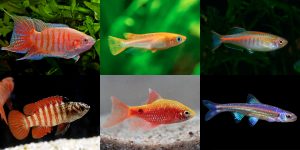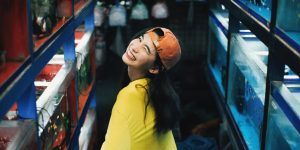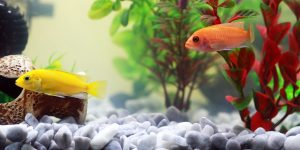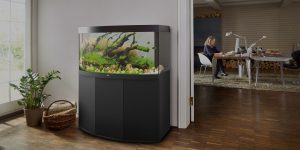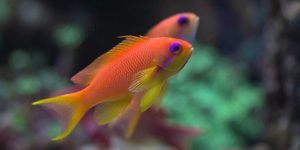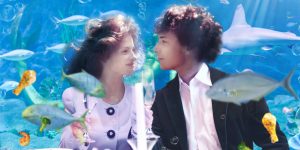Many of the aquarium fish that we keep today are captive-bred. That’s generally good news for the planet’s delicate natural ecosystems and wild populations of countless aquatic species.
The fishkeeping hobby has been criticised in the past for relying heavily on wild-caught fish. In terms of tropical freshwater species, captive breeding efforts have largely addressed such concerns, with just 5-10% now coming from the wild. At the same time, various tropical fish species are still routinely wild-caught. That includes those that are hard or even impossible to breed in captivity, like hatchetfish.
Elsewhere, and despite being commercially bred on a vast scale, popular aquarium fish like cardinal tetras continue to be collected from the wild. While that may seem at odds with fish conservation efforts and protecting the environment, the opposite is, in fact, often true.
That’s thanks to the likes of Project Piaba.
Introducing Project Piaba
Founded over 30 years ago, Project Piaba operates on the Rio Negro tributary of the Amazon River in Brazil, South America. Its primary focus is studying and fostering beneficial home aquarium fisheries to drive conservation. The initiative does so by supporting sustainable livelihoods that depend on habitat conservation.
Buy a fish, save a tree
Project Piaba’s name comes from the Brazilian Portuguese word, piaba. Piaba means “little fish” and refers specifically to the cardinal tetra. Because of its sustainable nature, Project Piaba’s slogan is, “Buy a fish, save a tree”. Meanwhile, another slogan used by the project is, “Tiny fish, big impact”. Both refer to how the sustainable, proper collection of wild-caught fish is helping to protect the Amazon and its forests and other habitats.
The cardinal tetra is just one of numerous species sustainably collected as a part of Project Piaba. Others include:
- Banjo catfish
- Black morpho tetras
- Dwarf checkerboard cichlids
- Marbled hatchetfish
- Threadfin acaras
- Various apistogramma varieties
- Numerous corydoras species
- Three-lined pencilfish
The three-lined pencilfish is a particular favourite of ours at Your Aquarium. They’re a staple in many of our South American-themed tanks, as are marbled hatchetfish and banjo catfish!
Conservation via aquarium fisheries
Project Piaba’s conservation work is delivered alongside and in partnership with existing aquarium fisheries. For decades, home aquarium fish have been collected from areas of immense biological importance worldwide. This collection has quite rightly elicited concerns surrounding over-exploitation. Yet, when properly managed, the risk of over-exploitation is almost entirely eliminated.
Where this is achieved, instead of exploiting nature, the home aquarium trade in sustainably wild-caught fish provides significant environmental and social benefits. That includes preserving areas of biologically important habitat and moderating climate change by protecting tropical forests.






Project Piaba’s impact
Project Piaba doesn’t just promote conservation. They also support sustainable livelihoods where communities thrive by selling responsibly caught fish for the aquarium trade. In turn, local people protect the resources that sustain them.
Many will be surprised to learn that in the areas where Project Piaba operates, more than half of the population relies to some degree on the ornamental fish trade for income. Without this income, they may instead be forced to work in environmentally destructive industries.
Examples of such environmentally destructive industries are slash-and-burn agriculture, logging, and mining. Others include cattle ranching and intensive food fishing – two more highly ecologically damaging forms of subsistence.
Instead, and where Project Piaba operates, over 46,000 square miles of Amazonian forest are now protected and preserved. To put that into context, 46,000 square miles is around half the size of the entire UK!
Did you know?
Did you know, over 800 freshwater fish species inhabit the Rio Negro where Project Piaba operates? With that, it’s a biodiversity hotspot and is home to various species not found anywhere else on the planet. Crucially, of these 800 or more species, Project Piaba’s approach to the sustainable capture of wild Amazonian fish focuses on collecting just a relatively small variety.
That’s as not to represent a threat to less-abundant local fish populations. Rather, collecting for the ornamental fish trade focuses almost exclusively on species that have adapted to high levels of natural mortality by freely spawning in massive numbers. A good example is Project Piaba’s namesake, the cardinal tetra.

A tropical aquarium staple, the cardinal tetra was first discovered in Brazil’s Rio Negro almost 70 years ago. Today, the Rio Negro remains a fertile home to—and collecting ground for—many well-known aquarium fish species. It’s something that’s a true testament to the efforts of Project Piaba and the countless individuals and their families that work in the area’s sustainable wild-caught fish trade.
That’s why the region’s aquatic habitats and the surrounding forests survive largely pristine. To ensure they stay that way, Project Piaba remains hard at work on continually improving sustainable fishing practices on the Amazon’s Rio Negro tributary as they undertake further research in the region.
Supporting conservation
At Your Aquarium, we’re wholly committed to the ethical sourcing and supply of livestock. We will never source or supply wild-caught examples of species deemed to be threatened in their natural habitats.
Where possible, we tend to source captive-bred fish rather than wild-caught specimens. The exception to that rule is when fish come from areas like the Rio Negro tributary. In such instances, we make every effort to guarantee that they’re responsibly collected in partnership with initiatives like Project Piaba.
How can you help?
By opting for fish sourced from the Rio Negro, you can help Project Piaba and the workers it supports remain viable. Doing so directly helps to promote a sustainable future for the locals and their families who rely on sustainable fish collecting for their livelihoods. You’ll also be indirectly allowing Project Piaba to continue its vital research and hands-on work in the region while simultaneously promoting critical conservation efforts in the Amazon.
Find out more about Project Piaba at ProjectPiaba.org.

